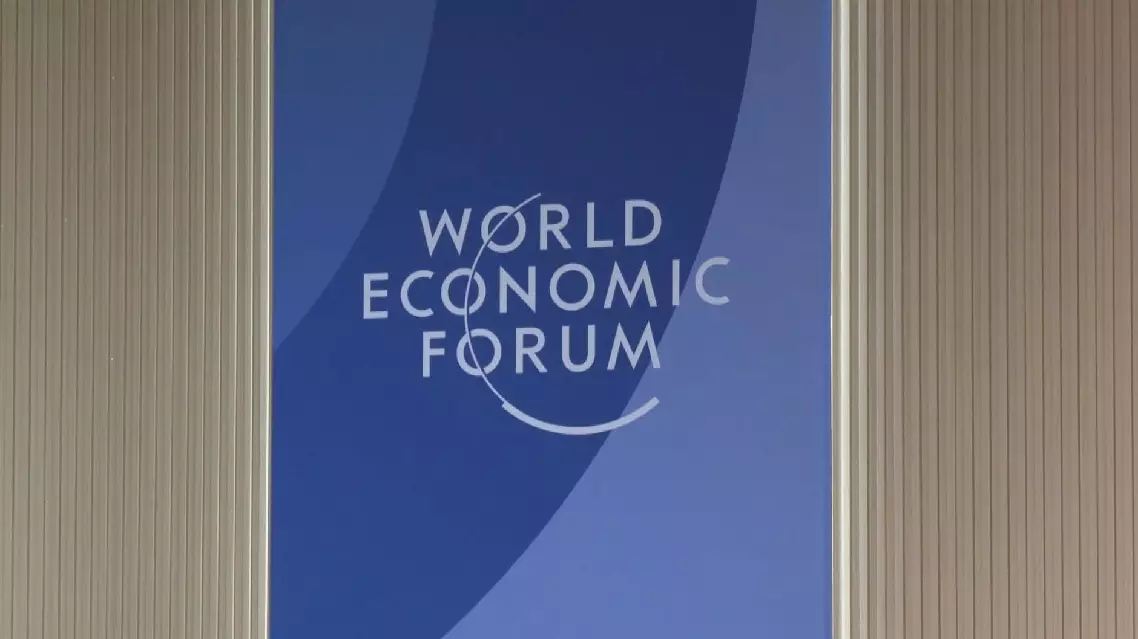The 2025 Summer Davos forum concluded its opening day in north China's Tianjin Municipality on Tuesday after seeing discussions centering on how new innovations can help reshape forward-looking sectors and inject new momentum into economic growth.
This year's three-day event, organized by the World Economic Forum (WEF) and also officially known as the 16th Annual Meeting of the New Champions 2025, has gathered more than 1,800 guests from over 90 countries and regions across the world, making it one of the largest attended editions to date.
Themed "Entrepreneurship for a New Era," the major gathering of global business leaders is focusing on five key areas: deciphering the world economy, outlook on China, industries disrupted, investing in people and the planet, and new energy and materials.
One of the highlights on the first day was the release of a report listing the "Top 10 Emerging Technologies of 2025," which pinpoints 10 innovations with the potential to reshape industries and societies, and included structural battery composites, autonomous biochemical sensing, and generative AI watermarking.
These emerging technologies are expected to deliver practical results within the next three to five years and could play a pivotal role in solving imminent global challenges, the report said.
Opening discussions on Tuesday morning covered a range of hot global topics, from deep integration of artificial intelligence across various industries, new regulatory challenges brought by the shift from traditional currency to blockchain, to advancements in battery technology fueling the surge in electric vehicles, and green energy transition driving industrial transformation.
Speaking at one such panel discussion, Mirek Dusek, the managing director of WEF, said the event has gathered a great number of innovators from the host country China, where the thriving development of the high-tech sector is helping reshape the country's economic landscape.
"We have a lot of unicorns and other entrepreneurs and innovators from within China corresponding to the different technologies that are really shaping the economies of tomorrow from AI and blockchain quantum, but then really going through health tech, clean tech, biotech, biopharma, space tech, really covering all these technologies," he said.
Meanwhile, Rania Al-Mashat, Egypt's Minister of Planning, Economic Development, and International Cooperation, underscored the urgent need to be more innovative in policy making to tackle an increasing volatile environment that threatens future global economic growth.
"All of us know that a very big challenge for the global economy is sluggish growth. And the World Economic Forum has the legacy of bringing everyone together, and when we say everyone, it's policy makers, private sector, civil society and entrepreneurs particularly. When we talk about entrepreneurship, it's not just about technology, but also entrepreneurial policy-making and trying to create resilient and innovative policy frameworks so that we are able to weather the different shocks we are facing," she said.
As this year's forum is spotlighting innovation, Dusek said more discussions will be held in the following days to encourage participants to share and gain insights.
"In particular we are going to be zeroing in this year on the AI innovation eco-system and the energy innovation eco-system. There has been a lot of curiosity, particularly recently, around how the Chinese AI eco-system and the Chinese energy eco-system are developing. So, we have dedicated sessions in the official program but also a lot of other sessions that go even deeper," he said.
Artificial Intelligence was another hotly-debated topic on the opening day in Tianjin, especially given the rapid development and advancements made in China's AI-sector in recent months.
Roland Busch, president and CEO of German tech giant Siemens, sought to alleviate any concerns about this advanced technology replacing jobs, sharing his view that it instead frees up mankind from completing mundane tasks and enables us to focus on harnessing our creativity and foster new growth models.
"I believe if you draw the comparison to what we saw in the 90s, where actually we saw the advent of robotics on the shop floor, many people were scared because they were thinking, actually, it's going to take jobs away. But if you walk around today, there's more employment than ever. And what we've seen with robotics is that it was replacing the 'muscles' of the humans. Now with AI, what we're going to see is the same thing for the brain. So now many people are scared that it's going to take away brain work. But we believe actually it's going to create more. Why? Because it's going to replace repetitive work where you have to do things over and over again, which we as humans are not really particularly good at. And we can focus our creativity, our empathy, our ability to see the bigger picture, and create new business opportunities. So the way we think about this is actually [that] the best is yet to come," said Busch.
In an interview on the sidelines of the forum, WEF President Borge Brende acknowledged that this year's Summer Davos is currently taking place against a hugely challenging geopolitical backdrop of conflicts and global tensions. However, he said there is still significant cause for optimism about the world's economic prospects, pointing to the importance of boosting productivity as being a key driver.
"The new technologies can increase productivity, and productivity -- what is that? That is producing more for less and that is prosperity, that's the only way to increase people's welfare, to have more resources, to invest in education, in health and people's livelihoods. So I don't think we should lose the optimism in such a situation either. But one also has to be realistic and not naive," he said.
Established by the WEF in 2007, the summer event is held annually in China, alternating between the two port cities of Tianjin and Dalian.

Summer Davos Day 1 highlights innovation's role in shaping future economy









